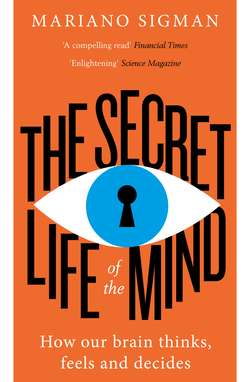Читать книгу The Secret Life of the Mind: How Our Brain Thinks, Feels and Decides - Mariano Sigman - Страница 21
He who robs a thief …
ОглавлениеThe construction of morality is, of course, much more sophisticated. We cannot judge a person to be good or bad just by knowing they did something helpful. For example, helping a thief is usually considered ignoble. Would the babies prefer someone who helps a thief to someone who thwarts one? We are now in the murky waters that are the origins of morality and law. But even in this sea of confusion, babies between nine months and a year of age already have an established opinion.
The experiment that proves it goes like this. Babies see a hand puppet trying to lift the top off a box in order to pull out a toy. Then a helpful puppet shows up and helps it open the lid and get the toy. But in another scene an anti-social puppet jumps maliciously on to the box, slamming it shut and keeping the first puppet from getting at the toy. When choosing between the two puppets, the babies prefer the helper. But here Wynn was going for something much more interesting: identifying what the babies think about stealing from an evildoer, long before they know those words.
To do this she designed a third act for the puppet theatre, and the helper puppet now loses a ball. In some cases, in this garden of forking paths, a new character appears on the scene and returns the ball. At other times, another character comes in, steals it and runs away. The babies prefer the character that returns the ball.
But the most interesting and mysterious part happens when these scenes feature the antisocial puppet that jumped maliciously on the box. In this case, the babies change their preference. They sympathize with the one who steals the ball and runs away. For nine-month-olds, the one who gives the bad guy his comeuppance is more lovable than the one who helps him, at least in that world of puppets, boxes and balls.fn11
Preverbal babies, still unable to coordinate their hands in order to grab an object, do something much more sophisticated than judging others by their actions. They take into account the contexts and the history, which turns out to give them a pretty sophisticated notion of justice. That’s how incredibly disproportionate cognitive faculties are during the early development of a human being.
